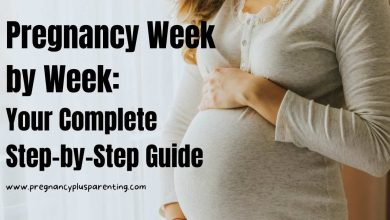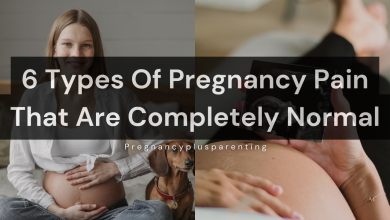Tough Pregnancy? Fix These 8 Annoying Problems Fast!
During pregnancy, women are very excited about their child. However, this joy is often clouded by all sorts of pregnancy-related complications that make everyday life difficult for expectant mothers.
From annoying breast tenderness to hemorrhoids – the list is long.
Unpleasant breast tension
The first signs of early pregnancy are often the intense pulling and tightness in the breasts caused by hormonal changes. However, most women only experience these symptoms in the first trimester; they usually subside later on.
For the initial period, women can relieve their pain by wearing a well-fitting bra. This should ideally be made of a soft, flexible material that supports the breasts well but isn’t constricting. A gentle massage with oil , a warm bath, or warm compresses can also be helpful.
heartburn
Heartburn is also a possible side effect of pregnancy . Excess stomach acid rises into the esophagus, often accompanied by a burning pain. Toward the end of pregnancy, heartburn can become significantly worse, as the baby exerts pressure on the stomach from below, weakening the sphincter between the esophagus and stomach.
Heartburn can be relieved by switching from large main meals to several small meals . Eating slowly and chewing thoroughly, as well as sleeping with your upper body elevated, also provides relief from heartburn during pregnancy.
Constipation
During pregnancy, hormones cause the intestinal muscles to not function as usual. Added to this are reduced physical activity and the growth of the baby. Constipation can result.
Drinking two to three liters of water or herbal tea a day will stimulate digestion. Your diet should contain as much fiber as possible . Dried fruit, which naturally stimulates bowel movements, is also recommended for constipation .
Hemorrhoids
Typical symptoms of this condition include bleeding and irritation around the anus caused by enlarged or inflamed hemorrhoids (varicose veins in the intestine). They develop during pregnancy when the uterus presses heavily on the pelvic veins. The walls of the veins dilate, and hemorrhoids are often visible from the outside. These symptoms are often further aggravated by the intense straining during childbirth .
Special sitz baths or ointments are helpful for hemorrhoids; alternatively, cauterization of the varicose veins or removal by rubber band ligation can help.
Water retention
Increased weight during pregnancy isn’t always related to excess fat on the hips. Women often retain more water during pregnancy. Hormonal influences cause veins to become more permeable, allowing more fluid to escape and accumulate in the tissue. Water retention (also called edema) often accumulates in the legs, but can also occur elsewhere.
What helps is plenty of exercise, alternating showers or putting your legs up.
Thrombosis
Pregnant women and women after childbirth have a significantly increased risk of thrombosis due to the numerous changes in their bodies, as well as the pressure on the abdominal veins. The leg and pelvic veins are particularly affected.
To prevent blood clots from forming, it’s important to stay active during the last trimester of pregnancy. Lying down for long periods after giving birth is also no longer appropriate. Today, women get up quickly after giving birth to reduce the risk of thrombosis. Compression stockings can help support the leg veins.
Hair loss
Many women lose more hair during pregnancy. Especially after childbirth, it often falls out in clumps. In most cases, this isn’t a problem, but rather a consequence of the dramatic hormonal changes; a vitamin deficiency may also be the underlying cause.
With a little patience and a few extra vitamins, most women quickly get their old hair back.
High blood pressure and preeclampsia
A reading of 140/90 mmHg or higher is considered high blood pressure. Pregnancy-induced hypertension is usually short-term and self-regulates after birth.
Caution is advised if there is also increased protein excretion in the urine and the woman is gaining weight very rapidly. This is referred to as preeclampsia, which can lead to complications for both the mother and the child.
Depending on the severity, premature delivery may be necessary. However, in mild cases and with close monitoring of blood pressure and urine, the pregnancy can often be terminated naturally.
Conclusion
There are many different pregnancy symptoms that can affect women.
Anyone who notices unusual symptoms should therefore always consult a gynecologist for advice to be on the safe side.






